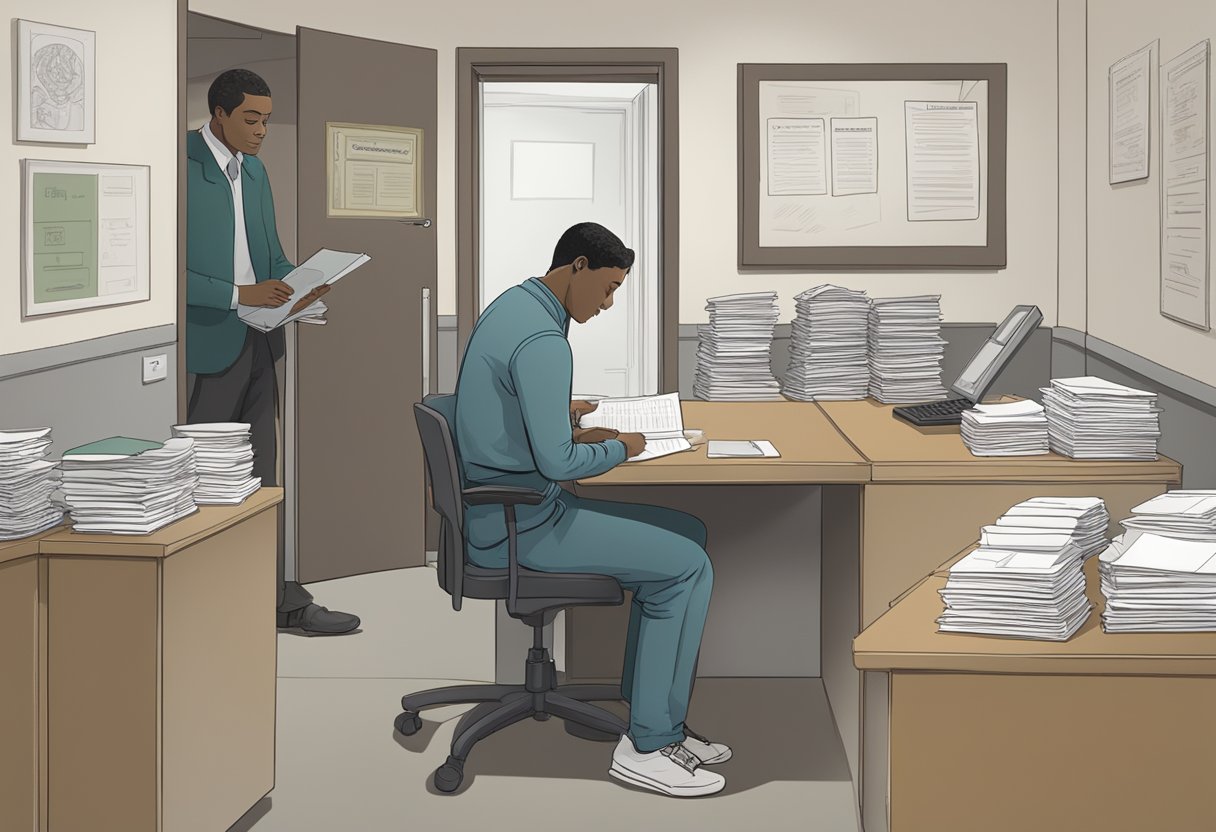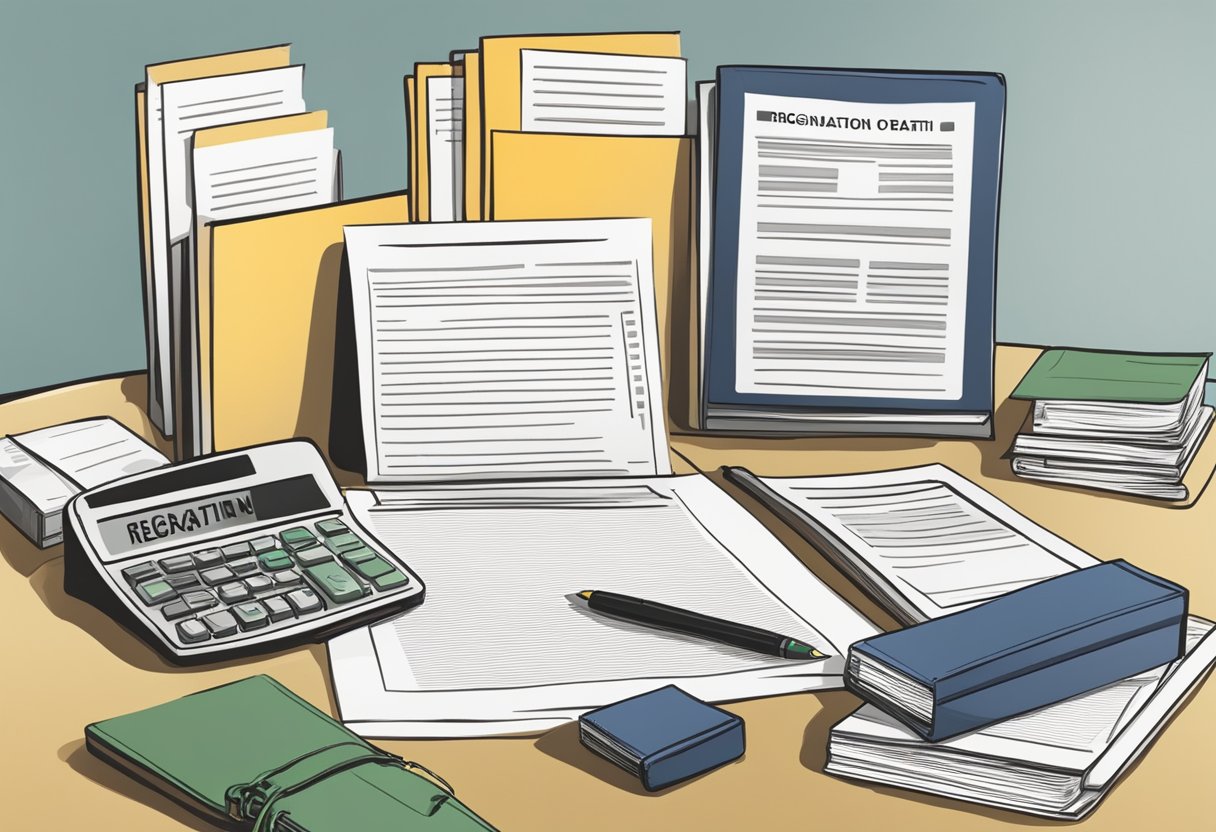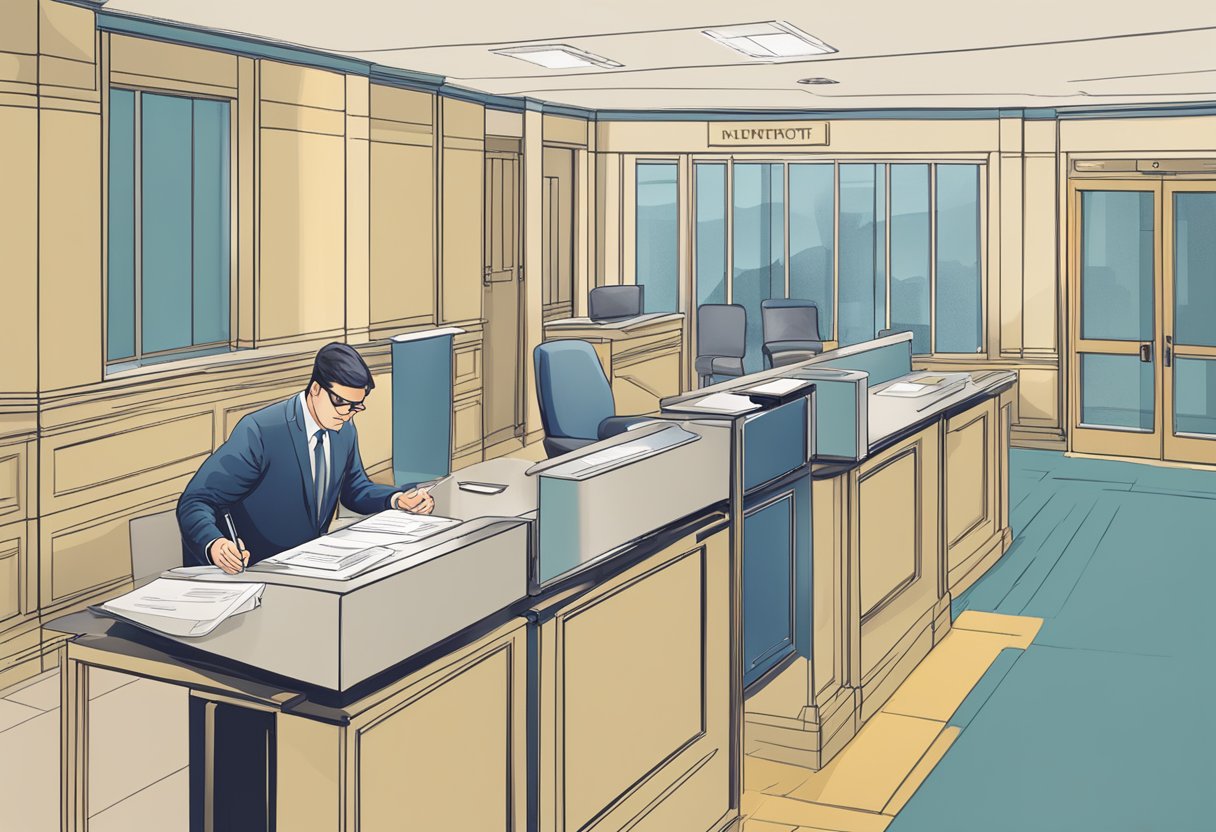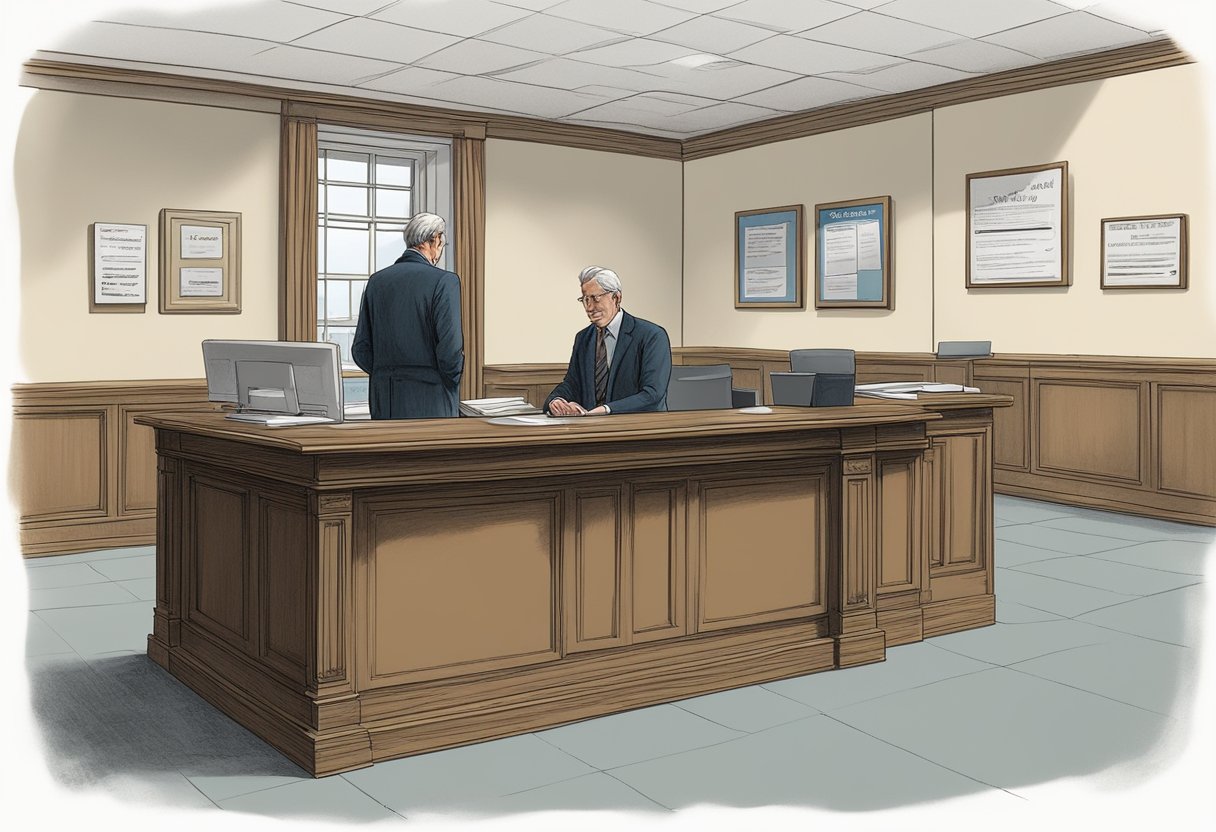Registering a Death in Wales
When a loved one passes away in Wales, the death needs to be registered with the local register office by law. This should be done within five days in England, Wales and Northern Ireland, and within eight days in Scotland. The responsibility to register a death typically falls to a relative of the deceased. If no relative is available, others who might be responsible for registering the death include someone present at the death, an administrator from the hospital where the death occurred, or a person taking care of the funeral arrangements.

The process of registering a death will involve providing specific details about the deceased, including their full name, birth date, place of birth, last address, and occupation. In addition to these details, the registrar will require information about the date and place of death. It’s may also be necessary to bring certain documents, such as the medical certificate of cause of death issued by a doctor, the deceased’s NHS card and birth certificate, and if applicable, their marriage or civil partnership certificate.
After a death is registered, the registrar will issue documents that are necessary for the funeral to take place. They will also provide a death certificate, which can be used to deal with the deceased’s estate. Different register offices in Wales may offer guidance and support through the process. For example, specific information regarding registering a death within Cardiff or in the Rhondda Cynon Taf area can be invaluable for those seeking localised assistance during this challenging time.
Legal Requirements for Registering a Death in Wales
In Wales, the registration of a death is a mandatory process that must be completed within five days. It involves providing specific details to the registrar for the record. A death can be registered by:
- Relatives: Preferably immediate family members
- Individual Present at Death: A person present at the time of death
- Person in Charge: The occupant of the house or official from the hospital where the death occurred
- Funeral Organiser: The person making arrangements with the funeral directors
Documentation Required includes:
- Medical Certificate: Issued by a doctor, certifying the cause of death
- Personal Identification: Of the deceased (passport, driving licence, birth certificate) and the person registering
- Information Required: Full name, date and place of birth, last address, occupation, and, if the deceased is a married woman or widow, the full name and occupation of her husband or deceased husband.
Registrations are made at the Register Office in the area where the death occurred. If registration cannot be done there, a declaration can be made at any Register Office and forwarded to the appropriate office.
It is possible to use the Tell Us Once service to notify government organisations once a death has been registered.
Penalty for Non-Compliance: Failing to register a death within the stipulated timeframe can result in a fine, unless a reasonable excuse is provided.
This legal framework ensures an accurate and timely record of death, aiding in the efficient processing of estate matters and the issuance of a Death Certificate, which is essential for legal procedures following a person’s demise.
Who Can Register a Death
In Wales, the registration of a death is typically carried out by a relative of the deceased. If a relative is not available, others are permitted to undertake this task. Those eligible to register a death include:
- A Relative: Any immediate family member, including spouses or civil partners.
- A Person Present at the Death: This can be a friend or anyone who was there at the time of death.
- An Occupant of the House: If the individual died at home, a resident of the house may register the death.
- The Person Making Arrangements: The individual organising the funeral (not the funeral director) is also qualified.
| Role | Eligibility to Register |
|---|---|
| Relative | Priority |
| Person Present at Death | If no relative is available |
| Occupant of the House | If no relative or person present at death |
| Person Making Arrangements | If none of the above are available |
It’s important that the person registering the death provides:
- Full name, date, and place of birth of the deceased.
- Last address, occupation, and information regarding their spouse or civil partner.
- The date and place of death.
- The cause of death, certified by a medical professional.
For deaths in a house or hospital, the registrar’s office in the district where it occurred should be contacted. If the death took place elsewhere, it can be registered at any registrar’s office in Wales. In such cases, the details will be forwarded to the appropriate district registrar. It should be noted that the process must be initiated within five days of the death.
Required Documents for Registration
When registering a death in Wales, the informant must present several documents to ensure the registration process is completed accurately. These documents confirm the identity of the deceased and the circumstances of the death.
Documents to Identify the Deceased:
- Medical Certificate of Cause of Death (MCCD): Issued by a doctor if the death was natural or by a coroner if the death was unexplained or sudden.
- Identification of the Deceased: Including passport, driving licence, birth certificate, Council Tax bill, marriage or civil partnership certificate.
Information of the Deceased Required for Registration:
- Full name (including maiden name if applicable).
- Date and place of birth.
- Last address.
- Occupation.
- Details of spouse or civil partner (if applicable).
Informant’s Documents:
- Proof of relationship to the deceased (where relevant).
- Personal identification, such as a driving licence or passport.
| Document | Description |
|---|---|
| Medical Certificate of Cause of Death | Required to establish the cause of death. |
| Identification for the Deceased | Used to confirm the deceased’s identity. |
| Informant’s Identification & Relationship | Confirms the informant’s identity and relation. |
The registrar may require additional documents in specific cases, so informants are advised to contact the Register Office in advance. Failure to provide the necessary documents may delay the registration process.
Steps to Take Immediately Following a Death
When a loved one passes away in Wales, there are several key steps one must promptly undertake to ensure that the death is appropriately registered and to commence the necessary legal and personal procedures.
1. Obtain a Medical Certificate: One needs to acquire a Medical Certificate of Cause of Death (MCCD) from the doctor who attended the deceased during their last illness. If the death occurred in a hospital, the hospital staff would arrange this.
2. Register the Death: Registration must occur within five days in Wales. The individual must visit the local Register Office in the area where the death happened. The registrant should be a relative or someone present at the death. If a relative is not available, the person responsible for arranging the funeral can register the death.
3. Arrange the Funeral: Making funeral arrangements is a personal process and can start once there is a MCCD. The individual can contact a funeral director for assistance if desired.
4. Inform Relevant Parties: Various organisations should be informed of the death, including:
- The deceased’s employer
- Social services and any benefits agencies
- Banks and other financial institutions
- Utility and service providers
5. Check for a Will: It is important to locate the will of the deceased, as it may contain vital instructions, including the nomination of an executor.
6. Secure Property and Belongings: The deceased’s property and personal belongings should be made secure, especially if their home will be left unattended.
Please note that if the death was sudden or unexplained, one must contact the police. They will notify the coroner if necessary.
How to Arrange an Appointment with the Registrar
When one needs to register a death in Wales, scheduling an appointment with the Registrar is a necessary step. The person responsible for registration should contact the Register Office within the district where the death occurred. They must do this within five days, or eight days if in Wales, as stipulated by law. It’s important to note that some offices might require appointments to be booked in advance due to high demand.
Steps to take:
- Locate the Nearest Register Office:
- Use the official UK government website to find the nearest office.
- Enter the postcode of the deceased’s location at the time of death to retrieve local contact details.
- Contact the Register Office:
- Call the provided telephone number during office hours.
- Some offices allow online appointment bookings; check availability on their website.
- Prepare Necessary Documents:
- Gather the medical certificate of cause of death (MCCD) from the attending doctor or hospital.
- Have the deceased’s NHS number and full name, date and place of birth, and last address.
- If applicable, bring their marriage or civil partnership certificate and National Insurance number.
- Attend the Appointment:
- Arrive promptly with all necessary documents.
- Expect to provide details about the deceased’s life and death.
Upon completing these steps, the registrar will provide a death certificate and other necessary documents for funeral arrangements. To ensure a smooth process, one should check for any additional requirements specific to the office they are dealing with.
Understand the Registration Process
In Wales, the death must be registered within five days unless the coroner is investigating the circumstances. The registration is completed at the Registrar of Births, Deaths and Marriages in the area where the death occurred. Planning ahead is recommended as appointments are often needed.
Steps in the Registration Process:
- Acquire the Medical Certificate: Obtain the medical certificate of cause of death from the doctor.
- Book an Appointment: Contact the local registrar to schedule an appointment.
- Prepare the Necessary Documentation:
- Deceased person’s NHS card
- Birth and marriage/civil partnership certificates
- Proof of address of the deceased
- Attend the Appointment: Be punctual and bring all required documents.
During the appointment, the registrar will need details including the deceased’s full name, date and place of birth, last address, occupation, and information regarding any benefits or pensions. If available, providing the NHS number and tax reference number is also beneficial.
Once registered, a ‘green form’ for burial or cremation will be issued, alongside a Death Certificate, which is often needed to settle the estate. Death certificates can be purchased for a fee – having several copies can be useful for legal procedures.
It’s crucial to remember that if one is not a relative of the deceased, the responsibility to register can fall to people present at death, the person making arrangements with the funeral directors, or the occupant of the house where the death occurred.
Certificate of Registration of Death
In Wales, upon registering a death, the Registrar will issue a Certificate of Registration of Death, commonly referred to as a Form 9. This certificate, also known as the “green form,” is essential for funeral arrangements to proceed. It authorizes the burial or cremation of the deceased.
The form is free of charge and must be provided to the funeral director. Without this document, the funeral cannot legally take place. Furthermore, the registrar offers a Certificate for a Burial or application for Cremation (Form 9).
Individuals may also obtain a Death Certificate, which is a certified copy of the entry in the death register. It’s important to note, the death certificate is not the same as the Certificate of Registration of Death. The death certificate is primarily used for legal processes, settling the deceased’s estate, and other administrative matters.
| Document | Purpose | Cost | Recipient |
|---|---|---|---|
| Certificate of Registration of Death (Form 9) | Allows funeral arrangements to proceed | Free | Funeral director |
| Certified Death Certificate | Legal processes, estate matters | Fee applicable | Next of kin/legal representative |
It is advisable to acquire several copies of the death certificate, as various organisations may require one. Each copy carries a statutory fee, and it is recommended to ask the registrar about the current charges.
What to Do After Registration
After registering a death in Wales, the bereaved individual is issued a Certificate for Burial or Cremation (sometimes called the ‘green form’), which is necessary to arrange a funeral. They also receive a Death Certificate, an official record of death. Here’s what to do post-registration:
- Arrange the Funeral:
- Present the Certificate for Burial or Cremation to the funeral director.
- Begin planning the service, choosing between burial or cremation, and consider any pre-expressed wishes of the deceased.
- Notify Organisations:
- Utilise the Tell Us Once service to notify government organisations in one go.
- Contact banks, utility providers, and insurance companies to inform them of the death.
- Manage the Estate:
- Locate the will to determine the executor.
- Apply for Probate, if necessary, which gives the legal right to deal with the deceased’s property, money, and possessions.
- Consider Bereavement Support:
- Seek support from local counselling services, bereavement support groups, or a general practitioner if needed.
- Financial Aspects:
- Check for any entitlements, such as a Bereavement Support Payment or other benefits.
- Address any outstanding taxes or debts left by the deceased.
It is advisable to keep copies of the Death Certificate, as various entities may require it for their records. Each step should be carried out with respect to the deceased’s wishes and legal requirements.
Handling Estate and Will Matters
When a person passes away in Wales, managing their estate and will is a crucial step in the process of handling their affairs. The task includes gathering all of the deceased’s assets, paying any debts and taxes owed, and distributing the remaining estate according to the will or the rules of intestacy if no will exists.
Initially, it may be necessary to apply for Probate, which is the legal right to deal with someone’s estate. This involves submitting an application to the Probate Registry, along with the original will and death certificate, and an estimated value of the estate.
If the individual left a will, the named executors are responsible for the administration of the estate. They must ensure that all assets are secured, and an accurate inventory is compiled. It’s also their duty to settle any debts and liabilities from the estate before distributing the assets to the beneficiaries as specified in the will.
In cases without a will (intestacy), the estate is distributed according to predefined legal rules. A close relative must apply to be the administrator of the estate. The distribution of assets then follows the order of next of kin, as specified by law.
When dealing with complex estate matters or if someone is unsure about the process, professional Will and Probate Services can provide essential support. These experts guide individuals through the legal intricacies and paperwork required, offering a structured approach to estate administration.
For tax matters, the estate may owe Inheritance Tax if it’s above a certain threshold. It’s the executor’s responsibility to assess and pay any due taxes using funds from the estate.
Throughout the entire process, accurate record-keeping is paramount. Executors and administrators should keep detailed accounts, which can be requested by beneficiaries and might need to be submitted to the court.
Support Services and Bereavement Counselling
When someone registers a death in Wales, they might experience a period of grief and require support. Support services are in place to assist individuals through the bereavement process. One can approach their GP for referrals to bereavement counselling services or contact organisations directly.
Organisations offering support and counselling in Wales include:
- Cruse Bereavement Care Wales: They provide free counselling and support groups.
- Contact: 0808 808 1677
- Website: www.cruse.org.uk/wales
- Bereavement Advice Centre: Offers practical advice on various issues after a death.
- Contact: 0800 634 9494
- Website: www.bereavementadvice.org
- Grief Encounter: Specialises in supporting bereaved children and young people.
- Contact: 0808 802 0111
- Website: www.griefencounter.org.uk
- The Samaritans: Available 24/7 for anyone who needs someone to talk to.
- Contact: 116 123
- Website: www.samaritans.org
Support services aim to provide a safe space for individuals to express their feelings and begin the healing process. They may offer:
- One-to-one counselling
- Support groups
- Telephone helplines
- Online resources
It’s important for bereaved individuals to know they are not alone and that help is readily available. Accessing these services can be a crucial step towards coping with loss.
Frequently Asked Questions About Death Registration
Who must register a death in Wales?
The death must be registered by a relative, a person present at the death, an administrator from the hospital where the person died, or a person who is responsible for the funeral arrangements.
Where can one register a death in Wales?
A death should be registered at a Register Office in the area where the person passed away. If this is not possible, one can ‘give notice’ of the death at any Register Office and they will transfer the details to the appropriate office.
What is the time frame to register a death?
Death should be registered within 5 days unless the coroner is investigating the circumstances of the death.
What documents are required for death registration?
To register a death, one will need:
- Medical Certificate of Cause of Death
- Deceased’s Birth Certificate and Marriage or Civil Partnership Certificate (if applicable)
- Deceased’s NHS Medical Card (if available)
- Information about the deceased’s date and place of birth, last address, occupation, and details of surviving spouse or civil partner
What documents are received after registering a death?
After registering a death, one will receive:
- A Certificate for Burial or Cremation (also known as the Green Form)
- A Death Certificate (a fee applies for extra copies)
- A Certificate of Registration of Death (Form BD8), if the deceased was receiving a State Pension or benefits
Please note that the process and documents can be subject to change, and it is advisable to check for the most current information with the local authorities or online at the UK government’s official website.
Do you have any other helpful information?
You my find our “What to do when someone dies” page helpful.








